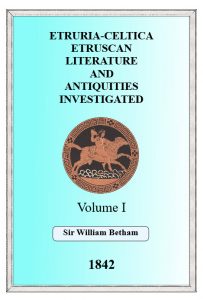THESE Volumes continue the inquiry commenced in my former publication, the “Gael and Cymbri;” I now repeat what I said in the preliminary observations to that volume:-
“Having been impressed with the idea, that the demonstration of the true origin and history of the Irish people, would afford powerful aid towards elucidating those of other European nations, I have pursued this investigation for many years, and the results have justified the accuracy of the opinion I had formed beyond my most sanguine expectations.”
In that volume I endeavoured to demonstrate the identity of race of the Irish, Britons, and Celtic Gauls, of Caesar’s day, and suggested that they were all of Phoenician origin; I now place before the world the results of further investigation, acknowledging that, upon some points, I have since found reason to change my opinion, and, as my object has always been not to affect infallibility, but to demonstrate truth, I have done so without hesitation. There was not, however, much to recall, subsequent inquiry has, for the most part, established general postulates.
A trifling spark may kindle a great fire, accident often supplies the clue refused to laborious research—
“Latins se tames aperiente nutter plus quam imponebatur oncris sponte suscepi.”—QUINCTILIAN
.
In reading in Suetonius, the life of Augustus, I found that Aesar, in the Etruscan tongue, signified God. The import in Irish being the same, it struck me forcibly that this might not be accidental, but that the Etruscan language might be essentially Celtic, and, therefore, capable of interpretation by the Irish. On examination, the conjecture proved well founded; the results of the investigations, consequent on the discovery of this clue, will be found in the following pages.
